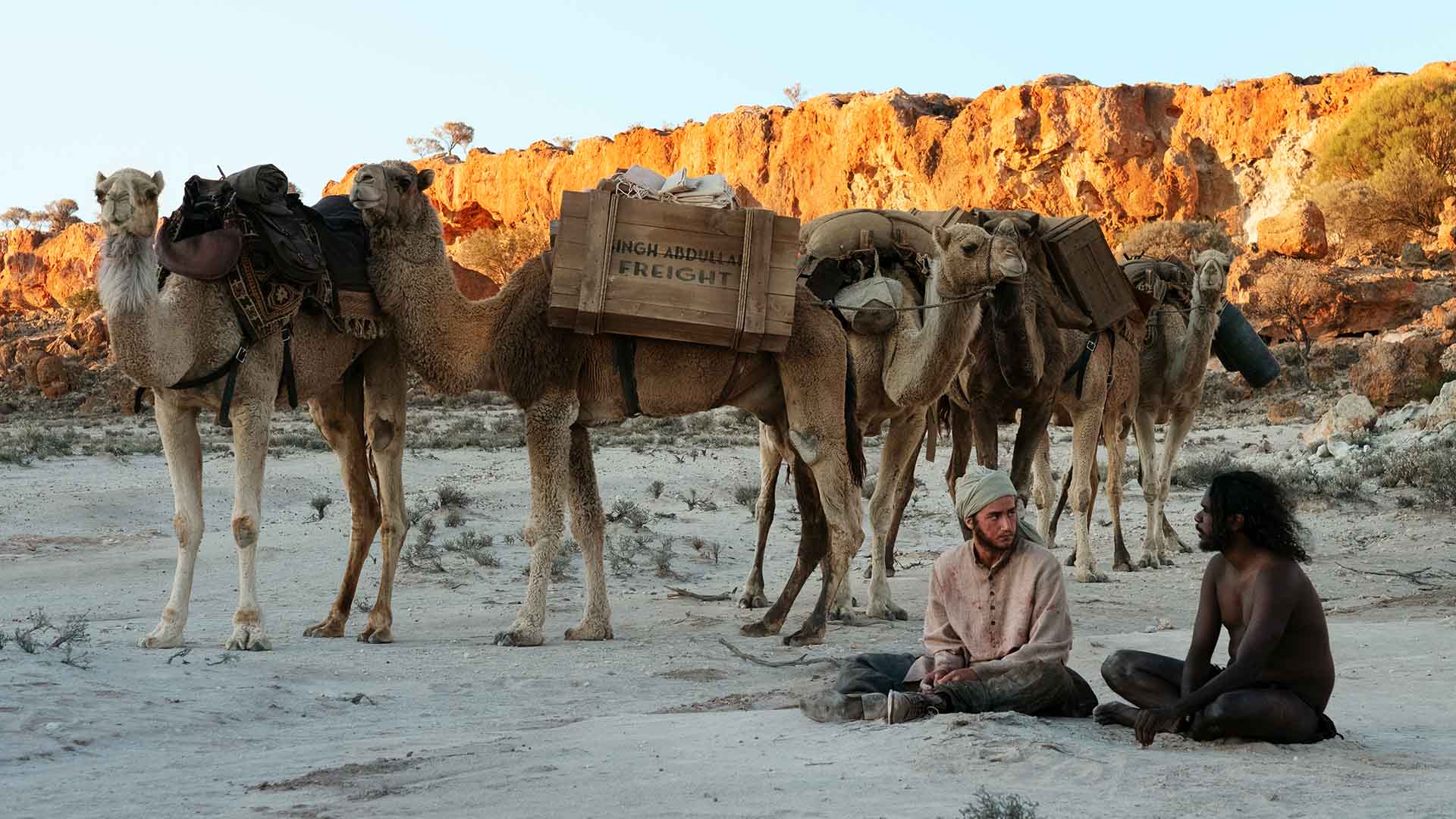The Furnace
Australia's latest meat pie western heads back to gold-rush era Western Australia to tell a powerful tale.
Overview
At this point in Australia's cinema history, audiences can be forgiven for wondering if homegrown movies have unearthed and told every outback tale there is. Filmmakers have surveyed the nation's ochre-hued terrain as a source of beauty, wonder, comfort, isolation, terror and horror many times over — and used it as a vast and striking backdrop, too — for decades via a multitude of genres. Splash almost any orange-tinted patch of the Aussie landscape across the big screen, and it instantly feels recognisable to even the most ardent of city dwellers, in fact. But the answer to the aforementioned query is an overwhelming no, as The Furnace shows. When the country's cinematic talent traverses this sunburnt and sprawling expanse we call home to explore stories steeped in our problematic past, it's impossible to run out of tales to unfurl.
First-time feature writer/director Roderick MacKay sets his meat pie western — the term applied to Australia's spin on the genre, riffing on Italy's spaghetti westerns — in gold-rush era Western Australia. The year is 1897, and transporting freight requires a network of cameleers who trek across the desert. The men hail from India, Afghanistan and Persia, and are largely of Muslim and Sikh faith. They're also badged together under the label 'Ghan' by white Aussies, who treat them poorly and cruelly. As they trudge and toil, Indigenous Australians are far more welcoming. Of course, in stressing this fact, The Furnace isn't making a minor point. MacKay delivers a powerful interrogation of Australia as a multicultural nation, and as a country controlled by those who've done much over the past two centuries to ignore and erase that truth. Indeed, it shouldn't be lost on anyone that the film draws from a real chapter of the nation's story, and also a largely forgotten one — so much so that it's likely to introduce the cameleers' existence to many viewers for the first time.
Hanif (Ahmed Malek, Clash), The Furnace's main point of focus, didn't choose to come to Australia or take up this line of work. So, when the young Afghan witnesses the death of his mentor at the hands of a white man, he's eager to earn the cash he needs to return home and leave his stint in the Aussie desert far behind. The Yamatji Badimia people he often spends time with on his travels, including leader Coobering (Trevor Jamieson, Storm Boy) and Hanif's friend Woorak (Baykali Ganambarr, The Nightingale), suggest that he stays and joins them instead — but, after stumbling across injured thief Mal (David Wenham, Dirt Music), he's determined to use half of his new acquaintance's stolen Crown-marked gold bars to finance his escape. Troopers led by the fervent Sergeant Shaw (Jay Ryan, IT: Chapter Two) are swiftly on the unlikely pair's trail; however, Hanif and Mal keep traipsing towards the eponymous smelter, where Mal promises they can melt down the precious metal to remove all traces of the government's ownership.
Charting Hanif's journey — physically, and emotionally and spiritually as well — The Furnace is a patient film. It follows characters making a considerable trek, and it lets that sense of time infect the audience. Viewers feel Hanif's exasperation as parts of his life slip by in the sun-dappled dirt and dust. The movie forces those watching to fall into a rhythm, where there's no shortage of new developments complicating Hanif and Mal's quest, but there's no urgency either. That's a difficult feat, especially in a film that sees its central duo pursued by the law with increasing vehemence. The audience knows that Hanif and Mal's predicament is precarious and pressing, because it's apparent in every second after they first cross paths. But MacKay doesn't rush a moment, scene or vivid yet composed image, ensuring viewers also know that being in a hurry means something completely different when nothing but hellishness stretches out as far as the eye can see.
It takes an immense amount of skill to realise exactly how long a story needs — not just to relay its plot, but to steep audiences in its characters' experience. If a movie feels too short or lengthy, it's usually because it has failed at this task. The Furnace perfects it and, in deploying the western genre's trademarks in an Australian colonial context, it serves up a stellar meat pie western in the process. The Proposition, Sweet Country, The Nightingale and the forthcoming High Ground have all done so since the turn of the century, and now have more company among the 21st-century's best examples. Perhaps less expected is the way that The Furnace also recalls the greatest addition to the western genre from anywhere over the past two decades: TV series Deadwood. While MacKay crafts an inherently and visibly Aussie story, he also taps into the acclaimed HBO show's canny understanding that trying to make something of oneself when a country is also in its fledgling phase of doing the same is not only complex, but brutal.
In a movie that's unflinching in posing the kinds of questions about our national identity that we should always be asking, that above observation applies across the board. It's given flesh via Malek and Wenham's performances, but it's the former that's the star here — alongside Ganambarr, who is now two for two film-wise. Both Malek and Ganambarr are expressive actors who can convey as much through their gaze and presence as through words, which MacKay capitalises upon via prolonged, unedited shots. Actually, they're the reason that The Furnace's biggest struggle stands out, too. So much is subtle and lingering about this film, so it's immediately noticeable when some peripheral characters prove one-note and cartoonish. Such blunt instruments clash with a movie that's otherwise poured as carefully onto the screen as molten gold from its titular stove.





